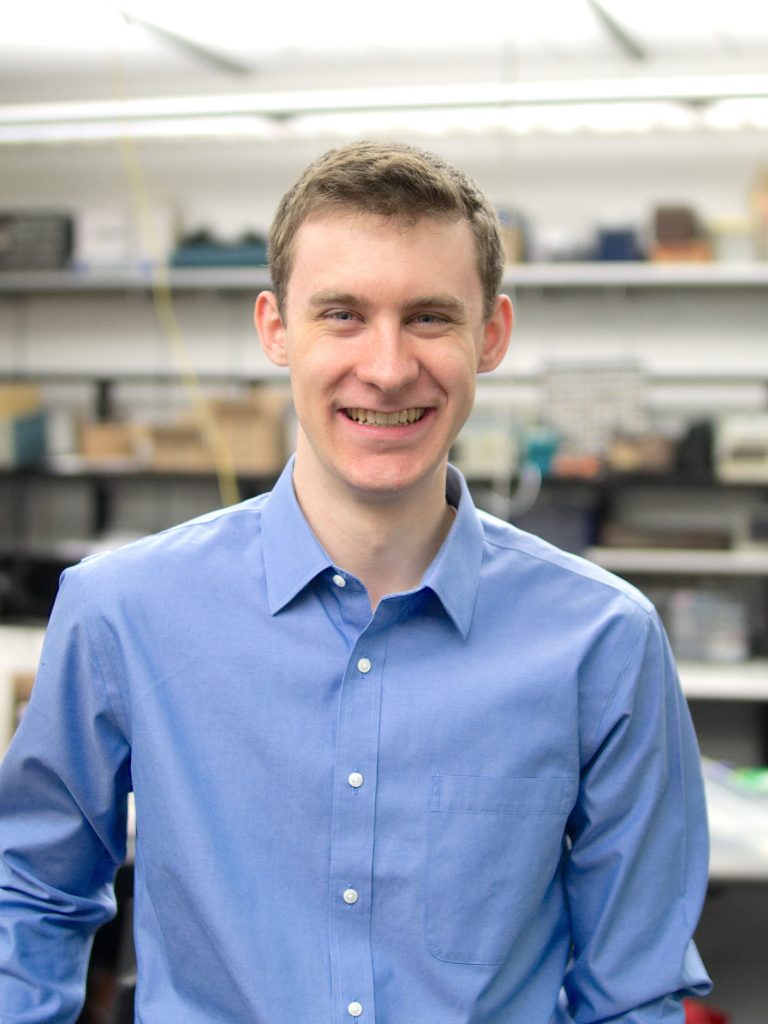Parker Ruth, a senior who will graduate this spring with bachelor’s degrees in computer engineering and bioengineering, has been awarded the College of Engineering’s Dean’s Medal for Academic Excellence. Each year, the college selects two students to receive this award in recognition of their academic achievement, leadership, and engagement in research and extra-curricular activities. Ruth exemplifies these qualities with departmental honors in both of his majors, his contributions to multiple research projects, his leadership roles and his work as an instructor.
“Parker is a gifted student with remarkable compassion and intellect,” said Magdalena Balazinska, professor and director of the Allen School. “Parker shines inside and outside of the classroom and is without a doubt one of the finest students that the Allen School has ever seen, and he is incredibly selfless and humble.”
In addition to pursuing a dual degree, Ruth is a student in the University Honors Program and the Lavin Entrepreneurship Program. The combination of his two majors has enabled him to build skills in biosignal processing, embedded systems, circuit design and fabrication. He seeks to improve the quality and accessibility of healthcare and has already been doing so as an undergraduate, working in the UbiComp Lab with Allen School professor Shwetak Patel.
“Parker’s research has looked at developing new health sensing solutions that are easy to deploy outside of the clinical setting including new ways to measure pulse transit time, stroke screening, osteoporosis screening, and supporting rehab — to name just a few,” Patel said. “His background and training in bioengineering coupled with computer science gives him both a strong intuition on the biological underpinnings of these projects while having exceptional computational, software, and hardware knowledge to research, build and deploy these unique solutions. Parker has demonstrated unprecedented work ethic, creativity, rigor, and a strong ability to present his work to a general audience.”
Ruth has supported research on more than 15 projects in the UbiComp Lab, multiple projects with bioengineering professor Barry Lutz, synthetic biology lab automation with electrical & computer engineering professor and chair Eric Klavins, and several other projects outside of either lab. From a mobile heart monitor prototype that takes electrocardiograms, to VaderNet, a deep neural network that can classify Star Wars characters, Ruth’s side projects are impressive on their own, but with Patel and Lutz, his research exceeds what is expected of most undergraduates.
In the Ubicomp Lab, Ruth built a smartphone app called OsteoApp that can screen for osteoporosis. The app, which works with Android, infers bone density from the resonant frequency of the tibia as measured by the smartphone’s accelerometer. With Lutz, Ruth built image processing algorithms to quantify results from rapid diagnostic tests. He first implemented his work to help improve rapid HIV diagnosis with 99% accuracy. He then switched gears during the pandemic and adapted his algorithm to quantify fluorescence results from point-of-care SARS-CoV-2 assays — expanding access to testing in low-resources settings.
Outside of research, Ruth created the Quantum Spot Academy for people interested in exploring physics. For several years he also worked as a teaching assistant in Allen School and Bioengineering courses and has served on Bioengineering’s curriculum committee since the fall of 2018.
Ruth’s work ethic, talent, and initiative illustrates his willingness to work hard as a leader. He founded the Bioengineering Journal Club, where students share their passions for cutting-edge research in bioengineering. From there, he evolved that club into Bioexplore, an outgrowth of the club that increased its scope and scale of events as well as the diversity of the community it serves. He’s also a volunteer with the Pacific Northwest Brain Bee, which inspires high school students to study neuroscience.
In addition to the Dean’s Medal, Ruth has earned multiple university and external honors. Earlier this year, he received a National Science Foundation Graduate Research Fellowship and was named a finalist in the Computing Research Association Outstanding Undergraduate Researcher Award competition for the second year in a row. Parker also earned a 2021 graduate fellowship from Tau Beta Pi, the engineering honor society. He previously was named a Barry Goldwater Scholar and a member of the Husky 100, which recognizes students who are making the most of their time at the University of Washington.
Ruth will enter the computer science Ph.D. program at Stanford University in the fall, where he will join his sister Kimberly, who graduated from the Allen School last year. Kimberly was a Dean’s Medalist, received a National Research Foundation Graduate Research Fellowship, received a Computing Research Association Outstanding Undergraduate Researcher Award, was named a Barry Goldwater Scholar, and was a member of the Husky 100.
Congratulations, Parker!


